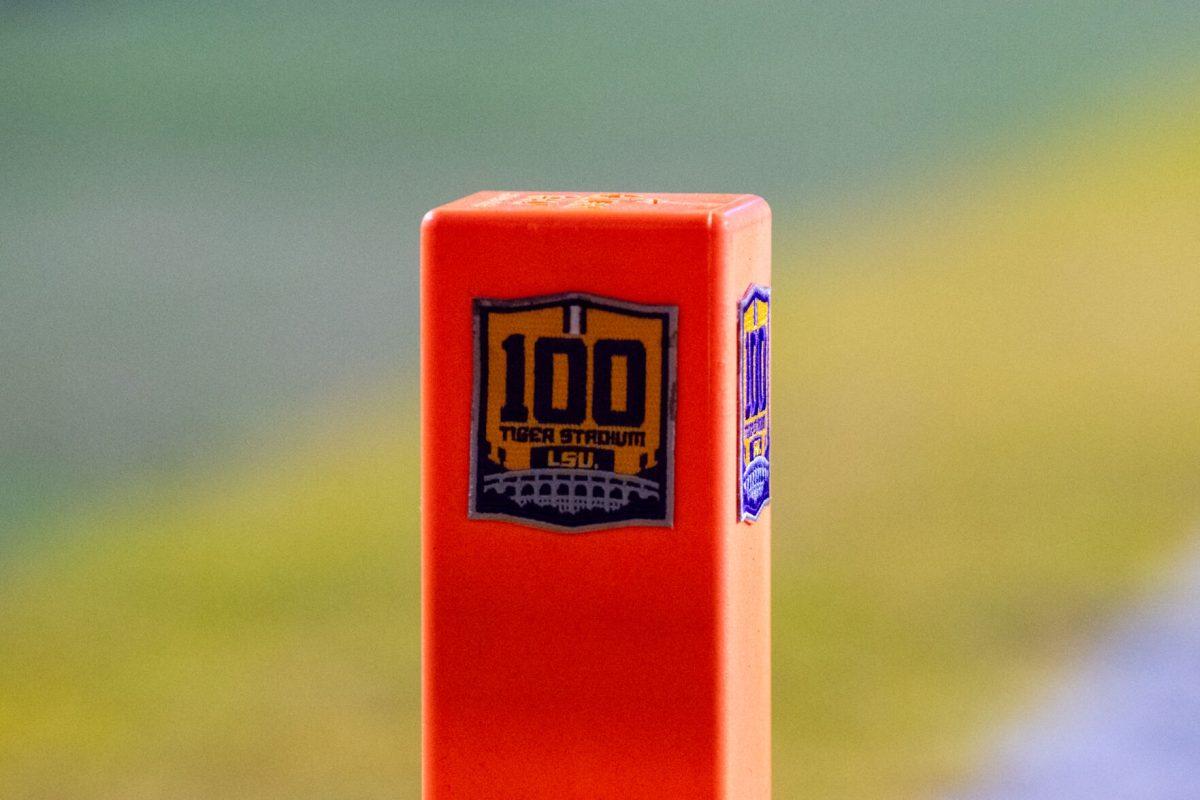Matt Canada’s offensive goals are no secret: score points.
Yes, and develop quarterbacks, which has been a sensitive spot for LSU throughout the past decade.
Under his direction in one year as offensive coordinator at Pittsburgh, Canada — LSU’s newest offensive coordinator — steered the Panther offense to 42.3 points per game and an average of 447.5 total yards per game. The Panthers also led the nation in redzone touchdown percentage at 82 percent.
“The biggest stat that I look at for us is scoring points,” Canada said. “Scoring more points than they score.”
Wednesday afternoon, Canada was officially introduced as LSU’s newest play-caller, replacing interim offensive coordinator Steve Ensminger, and spoke at length about LSU’s offensive future.
Canada’s coaching style isn’t complex, Orgeron says: It is creative.
“Very creative,” Orgeron followed.
Multiple times Wednesday, Canada said his offensive system is molded around the skill level of his players.
Plays do not matter to the play-caller.
Which, reverts back to Canada’s method toward approaching, developing and recruiting quarterbacks — which he and Orgeron will begin Wednesday, they said. He simply wants the best football player.
“Plays are overrated,” Canada said. “The players you get win the games. Players win games, not plays.
“Our system is versatile enough. And coach mentioned it, I don’t think it’s anything magnificent or super creative, but we’re going to use our players’ talents to find a way to win. Stats are overrated. Stats are funny to talk about when you need to have something good to say. It matters about winning games. For me, my job is to score enough points to win games, and that’s what I’m going do, in leading our offense and leading our team.”
Canada said he doesn’t pride himself on having a complex offense which, possibly, could take more than a year or two to develop. He requires results quickly.
After quick turnarounds and new gigs, Canada has had success shortly after being relocated throughout his career — at Northern Illinois (2011 MAC Champions), Wisconsin (2012 Big Ten Champions) and at Pittsburgh last season (10th-ranked offense in the country).
He attributes his easy-to-learn scheme as the pipeline for quick success. Others attribute him, the 44-year-old offensive artist who even used his left tackle for two receiving touchdowns this season at Pittsburgh.
“We’re going to win right now,” he said. “That’s why we’re here. We got to win football games and my job is to do whatever Coach tells me to do and score enough points to win games.
“Our system is very easy. It’s very easy to learn. We find a way to teach it in a way that our kids understand it and they believe it and we want them to learn as fast as they possibly can.”
So what does Canada’s offense look like?
It’s a personnel-specific offense with ever-changing tempo and formation sets to fit the 11 players on the field. Oftentimes, Canada’s offense had been defined by creativity, balance and misdirection plays.
“If we have a multitude of tight ends, you’ll probably see more of those guys on the field,” Canada explained. “If we have great receivers you’re going to see them on the field more.”
“The different shifts and the use of personnel groupings,” Orgeron said of Canada’s offensive scheme. “The way he calls the game. The tempo which his offense runs. He’s able to run the ball. He’s able to have quarterback runs. He spreads you out. He gives the ball to playmakers in space and lets them make plays.”
In 2012, LSU defensive coordinator Dave Aranda got a clue about Canada’s offense and the scheme he presents. At the time, Aranda was employed by Utah State as he and State’s defense lost, 16-14, after missing a last-second field goal to Canada’s Wisconsin offense.
“Should’ve won that game,” Aranda remembered.
Aranda on Canada’s offense: “The jet sweeps are a big, big component of it, which we saw some in this league. The misdirection that he does with all the motions, shifts and quarterback runs. As a defensive coordinator, you love to be able to see this type of offense in the spring. You’ll see everything. You’ll see empty. You’ll see two-back run. You’ll see spread run. You’ll see three-step. You’ll see boots and waggles. So, when we come out of spring, there won’t be one thing we haven’t seen, which will be a good thing.
Sometimes, in the past, Canada has called for his offenses to be a prototypical offense with a pre-snap huddle. And at other times, he unveiled a no-huddle, up-tempo offense.
A game dictates what Canada does on offense, he says.
“It comes back to the game, comes back to the situation,” Canada said. “We will change the tempo at times. We’ve been very productive with that. We’ve done it all, and we could go back to anything. We’re not going to pigeonhole ourself right now either. But there’s merit to going fast. We all understand that. You see what it does to the defense.”
Notes
- Ensminger will coach LSU in the Citrus Bowl at the end of December. Canada will remain with Pitt’s offense for the Panthers’ Pinstripe Bowl game versus Northwestern on Dec. 28.
- Canada will not be in attendance for LSU’s bowl game, Orgeron said Wednesday.
- Orgeron, once hired at the end of November, said he expected Ensminger to remain on LSU’s staff after the hiring of an offensive coordinator … “Let me say this to you,” Orgeron said Wednesday. “Steve did a tremendous job. Our offensive staff did a tremendous job. Very proud of those guys. Steve is a good offensive coordinator. I think they’re going to work well together.”
- More from Orgeron on Ensminger’s future: “Here’s what’s going to happen: our staff has done a tremendous job. He and I have not talked about anything like that. We’re going to come in after that. We’re going to look what we got to do, what we have to do. But those decisions are down the road. I love our staff. I love everything that they’ve done.”









